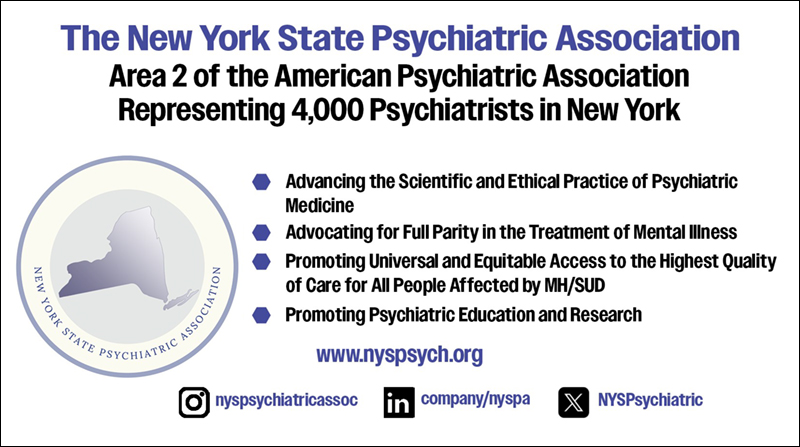The numbers are so depressing. The United States has the worst maternal mortality of any developed country, with a racial disparity that is shocking.[1] Mental health conditions are one of the leading causes of pregnancy-related death – in some places, THE leading cause.[2] We do a dismal job of identifying, evaluating, diagnosing, and treating mental health disorders, with the dispiriting estimate that only 3-6% of women with perinatal depression are treated to remission.[3]

There are many reasons for this grim picture. Insurance reimburses poorly for mental healthcare, and screening for perinatal mood and anxiety disorders (PMADs) is often overlooked in the reimbursement landscape.[4] Clinicians in both obstetrics and psychiatry are insufficiently trained to recognize and treat reproductive psychiatric disorders.[5] Systemic and structural racism, and the uneven resources that result, lead to imbalances in care.[6] And pregnant and postpartum women themselves are often reluctant to acknowledge their symptoms and to seek treatment – in part out of a desire to protect their infants from harm (though we now know that most psychiatric treatments, including medication, can be compatible with pregnancy and lactation).[7]
Looming large in each of these problem areas is the issue of stigma. Clinicians and patients alike are affected by societal standards assuming that pregnancy should be a happy time, and that women are bad mothers or failures if their mental health is less than ideal in this period.[8] Stigmatizing attitudes are perhaps an even more difficult issue to tackle than insurance issues, lack of education, and uneven resources, as they are often connected to long-held views that are based on belief and not evidence, and can thus become entrenched. While there are many tools to combat stigma (including making substantial changes to all of the issues mentioned above), one that is less dwelt on is the potential role of biomarkers and increased understanding of the pathophysiology of PMADs.
For many medical conditions, advances in our scientific understanding of disease have already reduced stigma and increased acceptance. Epilepsy is one such example – a disease that used to lead to shunning and ostracism and that is now much more likely to be accepted as a neurological disorder that can be effectively treated. [9] The advance of EEG and MRI technologies has given us the tools to find reliable biological signatures of seizure disorders, in turn leading to increased acceptance. But what do we have for PMADs? Differential EEG signatures have not been explored, though there are increasing attempts to do so in non-perinatal disorders. Brain imaging reveals consistent differences between the postpartum brain and that of non-perinatal women, but we are only beginning to tie this to psychiatric disorders, and the logistics of enrolling pregnant women in imaging studies are complicated. [10] Genetic studies have yielded some signatures of postpartum depression, but only in those whose illness begins in the first few weeks postpartum.[11]
But there is a promising avenue for biological tests that may help us to pinpoint pathophysiology as well as predict risk, and that is in the area of blood-based biomarkers. Critics of this line of reasoning will point out that PMADs are not solely a biological phenomenon – of course not, as with any psychiatric illness (indeed, any illness period), the causes are biology and environment intertwined. But for a substantial number of women with PMADs, the proximate cause of illness is vulnerability to the hormonal shifts of pregnancy, [12] whether that is mediated directly through hormone levels and receptor conformational change, or indirectly through related systems such as the immune system and the HPA axis. In the last 15 years, research teams have uncovered potential blood-based biomarkers in epigenetics, immune signatures, neuroactive steroids, and extracellular vesicles. [13] With the current crisis in federal grant funding, it is a matter of urgency that those interested in promoting the psychiatric health of today’s mothers and tomorrow’s children rally to enable continued research of these potentially game-changing lines of research. With a blood test to predict the development of a PMAD, mothers could stop thinking that their illness was “all in their head” or evidence of their unfitness as mothers, and focus instead on the treatment they need to manage their medical conditions in pregnancy and postpartum (just as they now focus on managing gestational diabetes and hypertensive disorders of pregnancy). It’s time for both mothers and clinicians to recognize that these are real illnesses, with real causes (both biological and environmental), and that only by identifying – and treating – those at risk can we advance the health of two generations.
Lauren M. Osborne, MD, graduated from Weill Cornell Medical College and received her psychiatric training at Columbia University/New York State Psychiatric Institute. She completed both clinical and research fellowships in women’s mental health and is an expert on the diagnosis and treatment of mood and anxiety disorders during pregnancy, the postpartum period, the premenstrual period, and perimenopause. Dr. Osborne is an Associate Professor of OB-GYN and of Psychiatry and serves as the Vice Chair of Clinical Research in the Department of Obstetrics & Gynecology at Weill Cornell Medicine. Her research on perinatal mental illness focuses on models of care and on biological mechanisms and biomarkers, with a focus on neurosteroids and the immune system, and she runs the PIPPI Lab – Psychoneuroimmunology in Pregnancy and Postpartum – at Weill Cornell. Dr. Osborne’s clinical work consists of collaborative care for perinatal mental health within OB/GYN. She is also the chair of the Education Committee for Marcé of North America; founder and chair of the National Curriculum in Reproductive Psychiatry, a free web-based standardized curriculum; and an editor of The APA Textbook of Women’s Reproductive Mental Health. Her work has been supported by the Brain and Behavior Foundation, the Doris Duke Foundation, the American Board of Psychiatry and Neurology, the Department of Defense, the NIMH, and the NICHD.
For more information, contact Lauren at lmo2003@med.cornell.edu.
References
- Petersen, E.E., et al., Racial/Ethnic Disparities in Pregnancy-Related Deaths – United States, 2007-2016. MMWR Morb Mortal Wkly Rep, 2019. 68(35): p. 762-765.
- Control, C.f.D. Pregancy-Related Deaths: Data from Maternal Mortality Review Committees in 36 US States, 2017-2019. 2024; Available from: cdc.gov/maternal-mortality/php/data-research/mmrc-2017-2019.html.
- Cox, E.Q., et al., The Perinatal Depression Treatment Cascade: Baby Steps Toward Improving Outcomes. J Clin Psychiatry, 2016. 77(9): p. 1189-1200.
- Jeung, C., L.B. Attanasio, and K.H. Geissler, Improving perinatal depression screening uptake: The impact of Medicaid reimbursement policy in Massachusetts. Health Serv Res, 2025. 60 Suppl 2(Suppl 2): p. e14420.
- Osborne, L.M., et al., Reproductive Psychiatry: The Gap Between Clinical Need and Education. Am J Psychiatry, 2015. 172(10): p. 946-8.
- Dreux, S.R., et al., Reproductive Justice Interventions in Pregnancy: Moving Toward Improving Black Maternal Perinatal and Intergenerational Mental Health Outcomes. Harv Rev Psychiatry, 2025. 33(2): p. 90-101.
- Iturralde, E., et al., Engagement in perinatal depression treatment: a qualitative study of barriers across and within racial/ethnic groups. BMC Pregnancy Childbirth, 2021. 21(1): p. 512.
- Daehn, D., et al., Perinatal mental health literacy: knowledge, attitudes, and help-seeking among perinatal women and the public – a systematic review. BMC Pregnancy Childbirth, 2022. 22(1): p. 574.
- Patel, P. and S.L. Moshé, The evolution of the concepts of seizures and epilepsy: What’s in a name? Epilepsia Open, 2020. 5(1): p. 22-35.
- Barba-Müller, E., et al., Brain plasticity in pregnancy and the postpartum period: links to maternal caregiving and mental health. Arch Womens Ment Health, 2019. 22(2): p. 289-299.
- McEvoy, K., et al., Reproductive Affective Disorders: a Review of the Genetic Evidence for Premenstrual Dysphoric Disorder and Postpartum Depression. Curr Psychiatry Rep, 2017. 19(12): p. 94.
- Schiller, C.E., S. Meltzer-Brody, and D.R. Rubinow, The role of reproductive hormones in postpartum depression. CNS Spectrums, 2015. 20(1): p. 48-59.
- Etyemez S, M.K., Iyer S, Ozdemir I, Osborne LM., Biomarkers of reproductive psychiatric disorders. BJPsych 2025. 00,00, 1-17. doi: 10.1192/bjp.2025.134 in press.





